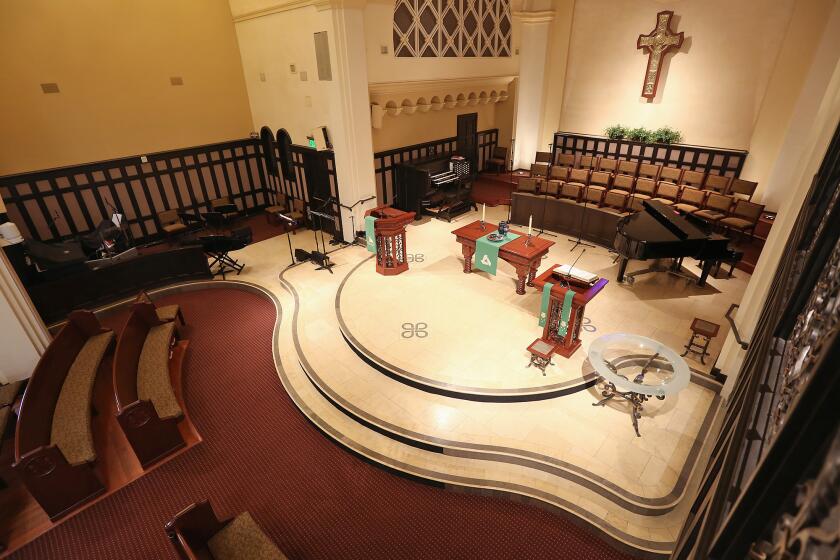Disabled residents defend equal rights law
Noaki Schwartz
NEWPORT BEACH -- Richard Barone wakes up even before the sun has a chance
to peak through the blinds. At 4 a.m., his aide repetitively stretches
his lifeless legs, bathes him, helps him get dressed and moves him into
his wheelchair. By 8 a.m. he’s ready to start his day.
“With everything, if it takes you one hour, it takes me three,” said
Barone, a retired industrial designer.
While many local businesses might see requirements of the Americans with
Disabilities Act as an overwhelming expense, for disabled residents like
Barone, it’s a matter of salvaging a sense of dignity. The legislation
was enacted in January 1990 in order to make public places more
accessible to wheelchairs. At the time, businesses were given two to four
years to comply.
Nearly a decade later, many businesses and public places are still
inaccessible for disabled members of the community.
“It’s discrimination. But not in-your-face discrimination,” said Russell
Handy, an attorney at the Center for Disability Access, a firm that
specializes in cases involving the Americans with Disabilities Act.
He added that the “emancipation proclamation for the disabled” took two
sessions of Congress and 20 years to get passed.
For older places like Balboa Island, however, constructing accessible
bathrooms and ramps is expensive and difficult, small business owners
say. Moreover, some feel that disabled activist Kornel Botosan -- who has
pursued 300 cases against noncompliant businesses since 1996 -- is simply
cashing in on the law.
Botosan has visited a number of local restaurants and filed lawsuits
against them for not providing wheelchair access. Both Snug Harbor on the
peninsula and Wilma’s Patio on the island attributed their respective
closures to the unaffordable legal fees resulting from Botosan’s
lawsuits.
Wilma Staudinger, the owner of Wilma’s Patio, said she was facing nearly
$90,000 in potential legal fees before she relocated her restaurant.
But Handy, who is also Botosan’s attorney, said that making an
establishment wheelchair-accessible is a matter of equality for the
nearly 50 million disabled Americans. And, he said, it is not
unreasonably expensive.
The most common problem encountered by the disabled is accessible parking
-- which he pointed out costs only $300 to mark a space.
“We had one guy that was trapped in the Del Mar fairgrounds for six hours
when he couldn’t get to his parking space because it was blocked by
another car,” Handy said.
Still, a substantial increase in the cost of renovating the Balboa
Theater is in part because of the law, said Michele Roberge, executive
director of the Balboa Performing Arts Theatre Foundation. In order for
the theater to be accessible for both disabled patrons and technicians,
wider aisles, bigger seats, lifts and ramps must be installed.
Dayna Pettit, president of the foundation, is sympathetic but added that
“these old places have always been the same” and said local business
owners shouldn’t have to renovate at the cost of losing their livelihood.
“[Disabled community members] can still wheel in and out of Balboa,” she
said. She added that the foundation is lucky to have so much community
support and that they want the theater to be accessible to everyone.
Being able to do such everyday things as attend a play or movie is what
the law is all about, Handy said. For Barone, however, the changes aren’t
coming fast enough. Despite assurances that his apartment was
wheelchair-accessible before he moved in, Barone said he has trouble
getting around inside his apartment.
“The elevator is not big enough, the front doors aren’t big enough, there
are no cutouts on the curb ... Most [businesses] sympathize and really do
try to accommodate you,” he said. “But other people have the attitude of
‘we don’t have to comply and if you don’t like it here, get out.”’
That’s exactly what Barone plans to do as he searches for a more
wheelchair-friendly home in another city.
All the latest on Orange County from Orange County.
Get our free TimesOC newsletter.
You may occasionally receive promotional content from the Daily Pilot.



